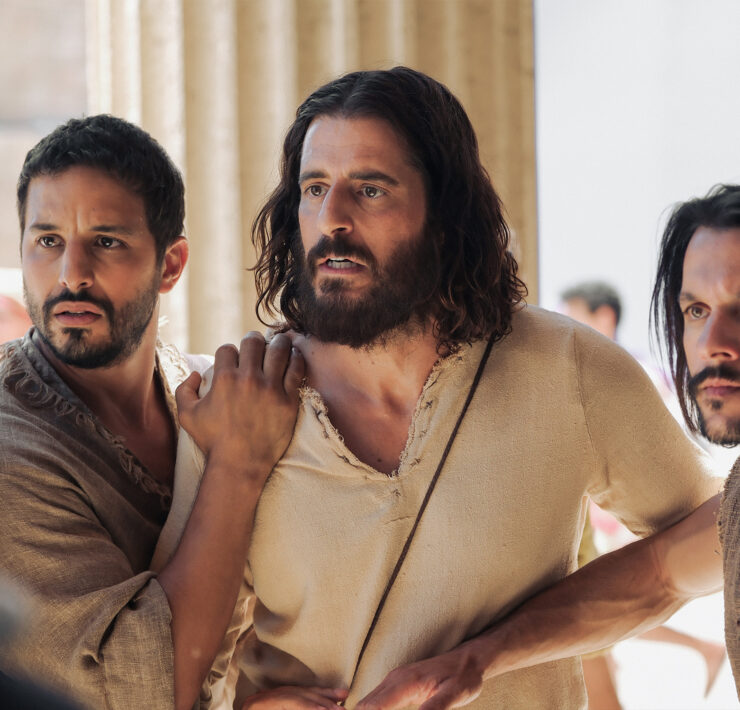Rotten Tomatoes can be a little tricky. Movie reviews are full of nuance, praising and critiquing a movie at various points of script, production value, acting and editing before finally coming down on a qualified analysis of whether the critic liked it or not. Rotten Tomatoes flattens this analysis into a simple fresh or rotten.
So, theoretically, a movie could get a fresh review even if the majority of critics were only lukewarm on it while a movie could get a rotten review even if slightly over half of the critics were mixed and slightly less than half thought it was a masterpiece. Rotten Tomatoes might be a helpful tool if you’re browsing Hulu, wondering if anything is any good. But you’ll need to do a little more digging (or just take a chance on the movie itself) if you really want to know what you’re getting into.
So, that said, everyone knows Christian movies have a tough time critics, on account of most of them not being very good. That said, a few Christian movies did manage to cross the divide from rotten to fresh. Actually, if you could include movies with biblical themes like The Prince of Egypt, Silence and First Reformed, then lots of faith movies have been certified fresh. But if we’re keeping it strictly to movies produced by a “Christian” studio, then the number is a little smaller. Here they are.
All Saints
Rotten Tomatoes Score: 95%
This 2017 drama unfortunately flew under the radar, but almost every critic who saw it was impressed. A pastor charged with shuttering a sparsely attended country church is transformed by the friendships he forges with the refugees who attend the church, and together, they try to find a different use for the church’s land. “All Saints feels like a bit of a miracle,” wrote Christy Lemire at RogerEbert.com. “It’s a faith-based movie inspired by a true story that lets its dramatic moments unfold without relying on melodrama.”
Indivisible
Rotten Tomatoes Score: 74%
An Army chaplain gets deployed to Iraq shortly after he gets married and returns a very different man, haunted and traumatized by the things he saw in the war. Indivisible is a little unique in that it foregoes the hoo rah bravado of many similar war movies to show soldiers as sensitive, complex and frequently damaged in ways people back home have a hard time understanding, no matter how badly they want to. Joe Leydon at Variety said it was “an arresting faith-based drama about a crisis of faith, set against the 2007 troop surge of the Iraq War.”
Greater
Rotten Tomatoes Score: 69%
The true story of Brandon Burlsworth, the Division I player who walked on after being told he didn’t have what it took and went on to become one of the most storied players in the program. “While Brandon’s own faith never wavers, the film cross-examines Christian pieties and even faith itself to a greater degree than any other faith-based film I can think of,” wrote the National Catholic Register’s Steven D. Greydanus.
I Can Only Imagine
Rotten Tomatoes Score: 67%
The true story of Bart Millard’s troubled relationship with his own father and the road to writing his inspirational hit “I Can Only Imagine” won most critics over, with Variety’s Peter Debrudge saying “the movie works for the same reason the song does: It lightens the burden of the pain people are shouldering today, and gives them something to look forward to.”
Woodlawn
Rotten Tomatoes Score: 73%
Sean Astin stars in another faith and football movie, this one based on a true story about the tense racial integration of a Birmingham high school and the man whose spiritual leadership held the team together even as structural racism tried to pull them apart. “Sports and religion are a potent combination,” wrote the Hollywood Reporter‘s Joe Scheck. “One that siblings Jon and Andrew Erwin (October Baby, Mom’s Night Out) exploit to canny effect in their new film based on the real-life Woodlawn High School football team.”
The Case for Christ
Rotten Tomatoes Score: 61%
This one got there by the skin of its teeth (60 percent is the cutoff for a fresh rating) but it counts! The cinematic adaptation of Lee Strobel’s apologetics bestsellers dramatizes the author’s own conversion process, which he reached through a journalistic investigation. “The Case for Christ still has its weaknesses, and even the faithful might feel that a secular inquiry into the evidence of Christ’s Resurrection is kind of missing the point,” wrote the Deseret News’ Josh Terry. “But as a film, it is a sure step in a positive direction.”
























